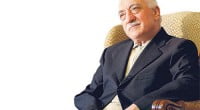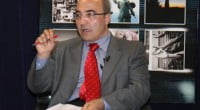Reflections on my first trip to TÜRKIYE

Date posted: October 30, 2013
Brendan Dowd
“What do you think of my decision to send my son to boarding school? Am I being a good father?” Wow. That’s a heavy question. Serkan, our tour guide in Izmir, translated this heartfelt question, explaining that our host, and father of four, would be sending his third son to America for his secondary schooling. I sat at the table sipping on my cool glass of the traditional yogurt drink, ayran, and could not help but feel warmed by the genuine sincerity of the question. Here was a man humble enough to ask a group of strangers whether or not they thought he was a good father. The group of Chicagoans circled around the table smiled in awe.
Last week I had the pleasure of accompanying a group of Jewish community leaders on a Niagara Foundation sponsored trip to Türkiye (Turkey). Our mission: to provide the group with windows into the Jewish experience in Turkey. One of the trip participants would describe this as, “not a Jewish trip to Turkey but a group of Jewish people traveling to Turkey.”
Our itinerary was structured around a mixture of sightseeing, touring, and face-to-face meetings with influential voices from the Jewish, business, media, and legislative communities. Our base camp was the beautiful and mysterious Istanbul from where we would depart for a multi-day excursion into Kapadokya, Izmir, and Ephesus.
For the majority of the group this was the first time to Turkey. Since we’re all about relationship building at Niagara, we want to provide something different from the traditional guidebook travel–human connection and encounter. Our intercultural trips attempt to highlight the complexities embedded in the story of modern day Turkey by giving our participants the opportunity to peel back the various cultural and religious layers of a country so famously known for its layered pastry baklava (a.k.a my pistachio crack). At the heart of these trips are encounters and interactions with real Turks in a space where the group can ask real questions.
This was my first time to Türkiye and my first time participating in Niagara’s international trips. My role for the week was to shepherd. Whether from my seat on the bus, my chair around the omnipresent dinner table, or to stand a few yards behind our pack that roamed the ancient streets of Ephesus, I studied group dynamics, monitored the morale, and took hourly head counts. For once I was in the minority: it was humbling to be a Christian male among a predominantly female Jewish group guided by Turkish-Americans and traveling in a predominately Muslim country. This was a source of great reflection, which perhaps I can explore in more detail at a later date.
We called ourselves the Dozin’ Chosen (an adaptation from a reference to the small Jewish community in Alaska). It was an apt name, considering the hours we spent nodding off in the van as it returned to our hotels after long hours of walking, meeting, and eating. Here we were on our own micro-exodus – not in search of a homeland but in search of personal development. Our days were filled with presentations on Ottoman history, its rise to glory, the Ottoman’s notable success for integrating diverse religious and ethnic communities into fully functioning and flourishing participants in the dream of empire, the empires ultimate decline. We also learned about the dissipation of a Jewish community of 200,000 before the turn of 20th century to a mere 20,000, now concentrated in Izmir and Istanbul, after the establishment of the republic.
Our group was given the opportunity to discuss and explore contemporary issues with local journalists and community leaders, most notably, on the unfortunate but ephemeral tension in current Turkish-Israeli relations. The fact is, Turkey and Israel need each other, if not for the economic benefits of trade and tourism (as our friends and experts in Turkey pointed out), then certainly for sharing in weariness on the rise of Iran’s influence in the region. With a GDP of 786 billion USD and an annual growth of 5% per year, Turkey must be looked at as a valuable ally for any country in the region. However, there seem to be two important issues that will continue to stymy economic and political development: 1) Kurdish question 2) The rewriting of her constitution.
“Yet, behind all of the politics are people.” Niagara Foundation CEO Sherif Soydan notes, “The success of Israel and Turkey relations will come the people of both countries who have shared in a rich history of positive relations. Behind the political fights are human beings that want what’s best for their families and want to see the world.”
Our group also had the chance to explore some of Türkiye’s cultural heritage and visit some of its historical gems. While its impossible to truly “immerse” oneself in a culture in only a week, that certainly didn’t stop us from trying. Some highlights included roaming the golden horn’s architectural celebrities and recounting the Ottoman conquest of what was then Constantinople in 1453, floating high above the alien landscape of Kapadokya, Indiana Jones’ing our way through the Roman and Byzantine ruins of Ephesus, devouring tray after tray of freshly cooked local meats and organically grown vegetables, and cruising down the black Bosporus.
But woven throughout the trip were experiences of people-to-people diplomacy that form the heart of Niagara’s intercultural trips. “It’s not just the places you see or the food you eat that made the trip a success,” commented one participant, “ it’s the people we were able to meet that made it memorable.” Without meeting a person you will never really understand her/his reality. The dinner at the home of a successful pastry business owner and participant in the hizmet movement (The global movement of volunteer activism and spiritual piety nourished by the writings and teachings of Muslim contemplative Fethullah Gülen) demonstrated this well.
But as we convened for an evening of face-to-face conversation and bread breaking, I witnessed the evaporation of potential skepticism towards hizmet held by a few members of the group. We sat, hands clasping hot orbs of red tea, moved as our hosts recounted their recent door-to-door distribution of fresh meat to needy families in rural Tanzania at the end of the Eid al-adha celebration. This generosity was not linked to some hidden agenda to spread the Muslim faith, but is instead, rooted in their desire to bring joy to those less fortunate. Too good to be true you may ask? No, it’s just true and good.
Seeking some solitude that night in Izmir, I slide quietly, as to be undetected, into the chair at an open-air café on a beautiful tree-lined street to watch Arsenal ultimately lose to Dortmund. A wave of clarity washed over me and I began to reflect on what I will call the Niagara process: Building relationships with one person at a time (later one of the participants would describe this as “bird by bird”). Traveling with others allows one to be stripped of his or her titles and thus becomes more receptive and attentive to the new ideas, and new information. We create the space for thinking differently.
Gülen is often quoted as saying that a bird needs two wings to fly; those of science and religion. I would like to adapt this idea in light of our recent trip. A bird needs two wings to fly: knowledge and experience. You can read and study a people, a place, or an idea from afar. However, it is only when you interact with it with the other senses intimately through dialogue, through touch, and through smell, can you really begin to understand the true essence. Only then can you fly above to see the dynamic landscape in all of its beauty.
And so, I bid farewell to the city of İstanbul/Konstantinoúpolis/New Rome; a city that successfully embodies all that her diverse country has to offer, a city that has given, for a short time, space to a group of Chicago travelers to come to encounter and learn about the culture, traditions, and experience of the so-called “other” through food, face, word (and of course lots and lots of tea).
And so, when asked by friends and colleagues about my thoughts on the country there has been one-phrase that has been coming to mind: “beautiful authenticity”. But this is a beauty that you find in something as intimate in mourning. Here there is a beauty that rests above sadness of loss is a beauty that speaks to pure unadulterated “humanity”.
Nobel Prize winner in literature and Istanbul native, Orhan Pamuk, writes of his city of Istanbullus as a people bonded to each other through hüzün. This collective experience of melancholy and of longing for something imagined (but perhaps destined for?) has injected the city with a unique authenticity.
It’s no surprise then that Istanbul’s ayat al-kursi adorned monuments and mosques reach towards the sky, attempting to emulate God’s power with its own finite creation, if only to say, “remember me!” That’s not sad. That’s beautiful! Let us look to Rumi, the Anatolian poet who is so well loved in the land:
And if the rose should vanish from its sight
The nightingale will keep its beak shut tight–
The loved one’s all, the lover’s just a screen,
A dead thing, while the loved one lives, unseen.
When shunned by love you’re left with emptiness,
A bird without its wings knows such distress:
‘How can my mind stay calm this lonely night
When I can’t find here my beloved’s light?’
So what is it that makes humans desire to learn about other people? What nourishes that need for cross-cultural experience? I don’t have answers, but perhaps our group was searching for some greater truth, some greater authenticity, something that unites us all even amidst our differences. Thanks Mevlana, but we did not go like dervishes to Turkey to pull back the veils that separate the human heart from God. But we did go in search of something greater than ourselves, something that only a place outside of normative experience can give. In this meeting place something “human” is revealed.
So farewell oh city whose delicate beadwork of a cityscape drapes across the wrist of the setting Mediterranean sun. You’ve given me a taste of something you cannot find inside the pages of books or images on film. Your scent still lingers both in my memory and the collective memory of the world. Good luck as you work to achieve your greatness. Please, send your daughters and sons abroad for education for they have many riches to share with the children of this world. But most importantly, thank you for hosting our group, sharing with us your story, and providing us the space to learn and to grow alongside one another.
Photos and Words By: Brendan Dowd, Director of the Center for Cultural Exchange and Interfaith Dialogue
Brendan Dowd is the director of the Center for Cultural Exchange and Interfaith Collaboration at Niagara Foundation.
Source: October 29, 2013 , Niagara Foundation
Tags: Dialogue | Jewish Muslim Dialogue | North America | Turkey trips | USA |































